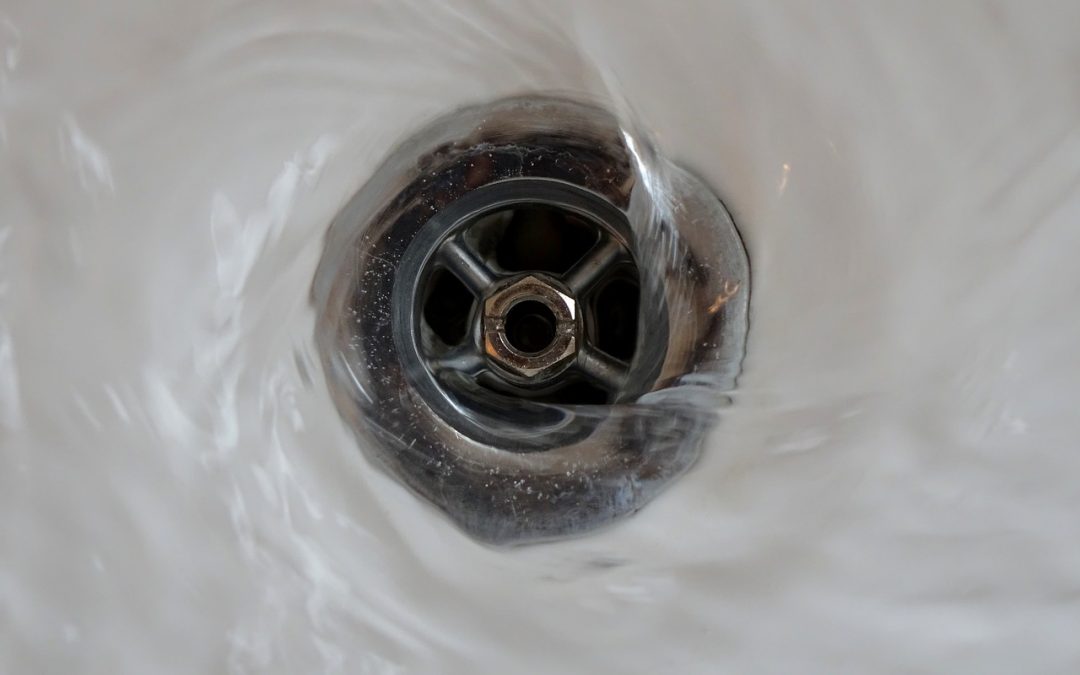We all know that when we turn on the faucet in our sink, shower, or tub, the water is supposed to go down the drain with the joy of Julie Andrews twirling in an Austrian hillside. But sometimes that doesn’t happen. Sometimes the water gurgles, pools at the drain, or, worse, brings up yuckies that have been hibernating in your pipes.
In the event that this happens, we ask that you resist the urge to use a commercial liquid drain cleaner. We know, the commercials make it seem harmless and effective, but the reality is these cleaners can cause serious damage to your pipes. And the bottom line is, an ounce of prevention is worth a pound of cure. Just because these chemicals may get the job done quickly, doesn’t mean they don’t come with a price.
If you have to use one, be sure to choose an all-natural enzymatic product. The natural enzymes in these products will break up organic material and bacteria clogging pipes, but they aren’t strong enough to dissolve monster clogs. In fact, you’ll get the most out of these products by using them monthly, as part of a maintenance routine, rather than saving them for when there’s a problem with the drain.
And there are also some DIY options, too!
Simple DIY Drain Maintenance Options for Your Drain
These tips will dissolve gunk and other buildup along pipe walls:
- Hot water. A pot of hot water down the impacted pipe will melt much of the organic material that’s lodged in there. Run cool water afterwards to wash away the loosened clogs.
- Baking soda and vinegar. First, pour a half cup of baking soda down your drain, and then pour a half cup of vinegar. Allow this to sit overnight, and by morning, just flush the drain with hot water and enjoy your freshly-cleared drain. For best results, do this maintenance method monthly.
What about tough clogs?
Does your drain required reinforcement? If you’d like to handle it yourself, you can use simple tools like a drain snake or a cup plunger, or you can definitely call your friends at Northside Plumbing for assistance.
How to keep your drains clear
As we always say, an ounce of prevention is worth a pound of cure, so if you’re looking for a list of things not to put down your drain or toilet, look no further:
- Oil, fats, or grease (best to put these in a jar, allow them to solidify, and dispose of them in the trash)
- Eggshells (definitely don’t put these down the garbage disposal!)
- Pasta, rice, and potatoes (starchy things)
- Bones
- Stringy or fibrous foods
- Coffee grounds
- Feminine products
- Tissues and paper towels
- “Flushable” wipes
- Hair (get a stopper for your shower or tub!)
These things in your pipes can cause major problems over time, so stop them from getting into your drains in the first place.
As helpful as these tips are, there are times when DIY strategies won’t get the job done. If you need help with a clogged drain, don’t hesitate to reach out to Northside Plumbing. We deliver same day, emergency service, we have a 100% satisfaction guarantee, and we are get it fixed right the first time.



Thank you for the tip about a pot of hot water helping melt a lot of the organic material that is built up in the drain. My sister has been worried about there being a problem with all the drain in her house. I think she should hire a professional as soon as possible to fix that before it gets too bad.
Absolutely! If she lives in Georgia, we are happy to help!
I didn’t know that pouring hot water down your pipe can help dissolve any organic debris in your drain. My wife and I have started to notice that the drain in our kitchen is starting to smell like rotten eggs, and we would like to find a way to clean it out before we host a dinner party this weekend. We’ll consider hiring a professional that can get rid of any debris in our drain.